ACS has recognised Jo Dalvean as Honorary Life Member of ACS at the April Victorian Branch Forum.
Honorary Life Member (HLM) is recognition by ACS of a member’s outstanding contribution the technology community.
It is the highest honour ACS can bestow.
As the only 2024 recipient of the prestigious award, Dalvean’s distinguished contribution to ACS has been outstanding
Dalvean is a long-standing member of ACS in Victoria and has served the society as a member of committees, Victorian Branch chair, and as a member of Management Committee where she initially represented the Victorian Branch and then served with distinction as VP Membership.
She has represented ACS as a member of ISO/IEC Joint Technical Committee (JTC1) of Standards Australia and as part of the International Federation of Information Processing.
In her branch, she is recognised for willingly providing her time and professional expertise and is known as the person to ask for help when projects are begun, and for her mentorship of those new to elected roles within ACS.
She has served in several roles at a national level, including the Public Policy Committee, which provides final operational approval on policy issues to be addressed by ACS both internally and externally.
She was and still is, a passionate advocate for diversity and inclusion.
The following ACS members were elevated to Fellows for 2024 (in alphabetical by surname order):
Professor Amanda Barnard (QLD)
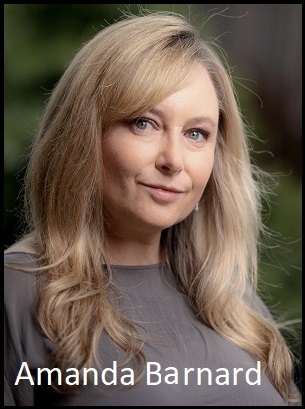
Professor Amanda Barnard has contributed to ICT in relation to high performance computing (HPC) infrastructure and its applications to research across a wide range of sciences.
She has had pivotal involvement in major national decisions on over $200 million of research infrastructure in Australia, New Zealand and Singapore.
Providing these services to scientific communities has facilitated the work of hundreds of researchers in such areas as the simulation of chemical reactions of protein systems that drive disease.
Barnard has also contributed significantly to multiple allocation schemes for computational resources and delivered new research methods to make discoveries that better leverage HPC assets.
She has herself conducted pioneering work in data science, machine learning and artificial intelligence (AI) in nanotechnology and materials design including vital experimental work leading to the development of protocols and models custom-designed for the particular kinds of data that arise in the physical sciences, shifting beyond computational modelling.
Dr Clarence Baxter (QLD)
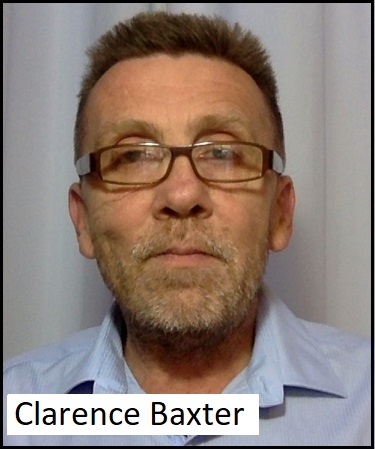
Dr Clarence (Clarrie) Baxter has conducted original research and knowledge in the field of mobile health, using built-in phone sensors for diagnosis and therapy.
He has a passion for leveraging ubiquitous mobile ICT technology of smartphones and wearable devices to realise population and individual health improvements.
Baxter has combined his knowledge of clinical respiratory measurement with his computing expertise.
This has led to robust and easy to use gamified software that virtualises a novel approach to an established clinical tool for respiratory therapy. His research and app development have the potential to reduce morbidity and mortality, and significantly improve health for many sufferers of respiratory disease worldwide, as well as reduce health inequalities in remote and low-income communities and countries, with the reduced cost of using a smartphone applications.
Dr Rachel Cardell-Oliver (WA)
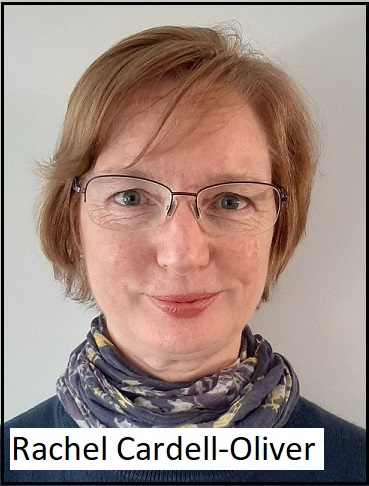
Dr Rachel Cardell-Oliver has contributed to ICT through multi-disciplinary research that uses machine learning with data from smart water meters and sensor networks.
She has gone above and beyond the normal research expectations of her position by closely collaborating with the wider research community, public utilities, and government departments to ensure outcomes from her multidisciplinary research are practical, realisable, and of benefit to the community and environment.
This collaboration and the subsequent widespread deployment of her data-driven approach has assisted those organisations to make a step change in water and energy conservation and effective public transport networks.
Cardell-Oliver promotes ICT through national roles that assist and advance professional association and cooperation, research, teaching, and advocacy for computer science and information technology.
She has driven schemes to promote and mentor women and minorities in computer science, establishing scholarships for refugees, and through many outreach activities.
Assoc. Professor Michael Cowling (QLD)
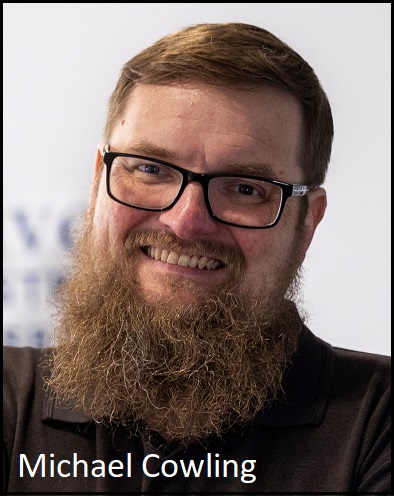
Associate Professor Michael Cowling has contributed to the fields of technology enhanced learning, and the impact of technology on society.
He founded The CREATE Lab, which provides outreach and engagement to educators, students and the general public.
Thousands of academics, teachers, and students from kindergarten to doctoral level have learned directly and indirectly from him, through his award-winning workshop series ‘Weaving Technology into the Fabric of the Classroom’ training numerous educators, and his CSIRO-supported ‘Professor Tech’ program engaging students in K-12 schools.
He has done this all while delivering his mantra of 'pedagogy before technology' and his commitment to technology as a driver to enhance the student educational experience.
Cowling is an Advance Queensland Community Digital Champion, and a recipient of the Universities Australia AAUT Award for Teaching Excellence (Physical Sciences).
He has made numerous contributions to Australian radio and print media on the topics of educational technology and technology ubiquity.
Dr Ernest Foo (QLD)
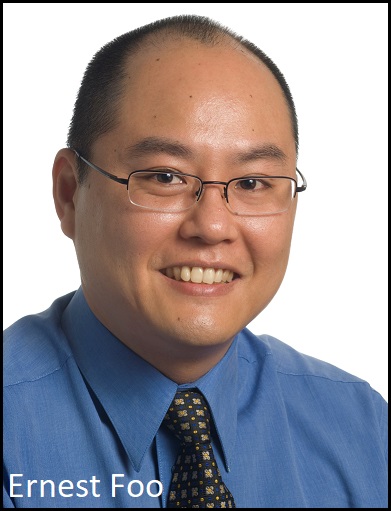
Professor Ernest Foo has provided innovative pathways for new graduates to gain experience in cyber security pre-employment and by significantly increasing Australia’s cyber security defences.
He has demonstrated how to bridge the gap between academia and industry, and provided innovative, specialised job-ready training for IT graduates, by leading the establishment and development of the Griffith University Cyber Studio, resulting in practical experience and paid job placements.
He established one of the first SCADA security laboratories in Australia, and his research in cyber security, particularly for critical infrastructure and physical systems, has advanced knowledge in the field.
Professor Foo's active engagement with the community and professional organisations has raised awareness about the importance of cyber security and positioned him as a leading voice in the field.
His extensive mentorship of students and young professionals has also helped nurture the next generation of cyber security experts.
Professor Asif Gill (NSW)
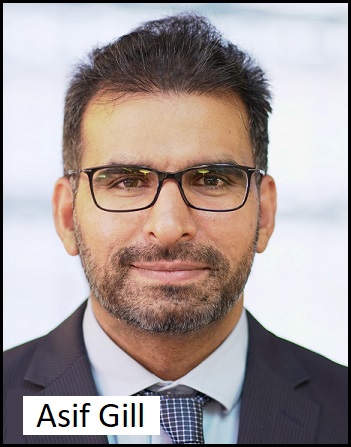
Professor Asif Gill has contributed to the field of adaptive enterprise architecture and large-scale secure data systems.
His research has led to new adaptive enterprise architecture theory, practical frameworks, and innovative solutions being successfully adopted into practice.
His work with the RBA has been acclaimed for leading to increased resilience in the banks’ business technology services, a system which manages the payments that keep Australia’s economy moving. Similarly, the complex customer data architecture project which he led for Revenue NSW, is noted as revolutionising efficiency across many parts the operation.
As a founder of DigiSAS Lab and FGEA CoP for industry and government, Gill has enabled integrated teaching-research-engagement that fosters the translation of research into practical applications and at the same time creates and enhances graduate employment opportunities.
Professor Gill is a tireless ambassador for the profession willingly travelling the breadth of Australia to give presentations to government, industry and ACS members.
Professor Paul Haskell-Dowland (WA)
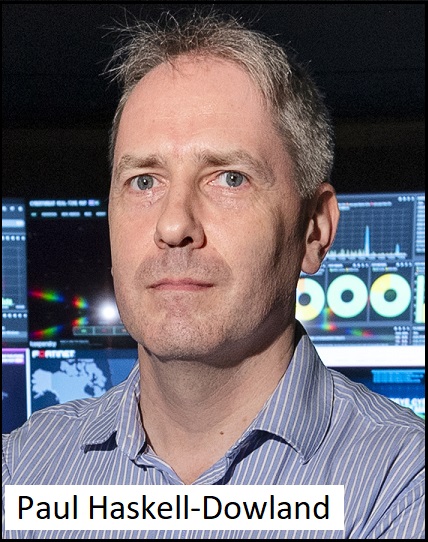
Professor Paul Haskell-Dowland has made a significant contribution to ICT through extensive media engagement that communicates complex cyber security concepts in an accessible and easy to comprehend fashion to many millions of people.
His teaching and research are informed through industry engagement that ensures that his media contributions are relevant and prepares students well to be job-ready graduates.
His clear communication in varied formats including online and traditional print-based publications, through social media, and by giving interviews on radio and television has led to a large increase in public awareness of cyber security issues.
This broad media engagement enables potential students and their influencers to see cyber security as a worthwhile profession that works in the service of the society, individuals, and other stakeholders.
Haskell-Dowland is valued as a cross-disciplinary mentor and colleague and has advanced the profession through service on national and international committees in his area of specialisation.
Professor Ryan Ko (QLD)
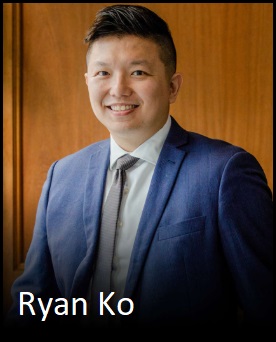
Professor Ryan Ko has influenced and contributed the development of significant Australian and International Cyber Security standards, and curricula development.
He was a principal co-contributor to the development of the Cyber Security Certification Australia standard SMB1001 for small and medium businesses, and also led the development of the global ISO/IEC 21878 standard.
Ko is renowned for his trailblazing approach to the research and teaching of cybersecurity, encompassing multi-disciplinary expertise from computer science, criminology, business management, risk and compliance, policy studies, and psychology.
He recognised the need for youths to develop cyber skills through gamification, and in 2022 co-founded the highly successful Oceania and International Cybersecurity Challenges, establishing Australia’s reputation as a leader in Cyber Security innovation.
In recognition of his Cyber Security education expertise, Ko was appointed to Tertiary Education Quality and Standards Australia for accreditations that review computer science, IT and cyber security academic programs in Australia.
Ms Sarah-Jane Peterschlingmann (QLD)
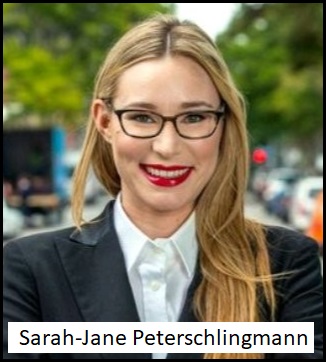
Sarah-Jane Peterschlingmann has contributed to ICT in the fields of technology, leadership, community engagement, and mentoring.
She introduced the concept of the ‘mission critical’ software ecosystem which runs and supports critical infrastructure, and has demonstrated how resilience, reliability and constant availability can be incorporated into this software with examples in aviation, medical systems and during the Brisbane floods of 2011.
She was also an early adopter and champion of remote working and flexible employment arrangements, together with proactive support for those who are neurodiverse or disabled.
Peterschlingmann is the owner of ATech, a global technology company, that demonstrates the success of using innovation in software development and cloud hosting.
She has shared her experiences as a mentor to many small technology start-up companies that have since flourished, also presenting at numerous conferences and seminars, including national and local ACS events; and has co-authored an Amazon best-selling book on whole-hearted leadership.
Mr Duncan Roe (VIC)
Duncan Roe has freely shared his acknowledged expertise in the Linux Operating system, the system that runs many of Australia’s servers and smartphones, as well as research supercomputers.
He has served this specialised software community for over 40 years via his code contributions and problem-solving abilities in the open-source communities, including Experts Exchange and AskLibreoffice, where he has been ranked at the highest levels.
Roe’s contribution to the open-source code development community is illustrated by the 19,000 lines of his code available on Github where he is rated as ‘Genius’ for Linux support by the user based ranking system.
He also physically volunteers his time as a mentor to Monash University students, a speaker and panellist at Linux conferences, as well as at ACS Branch Forums where he is always welcoming.
Mr Neil Thelander (QLD)
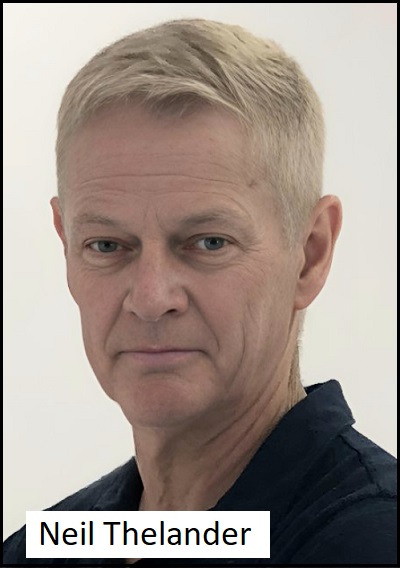
Neil Thelander has contributed to ICT with significant industry volunteer work and mentoring in leadership, project management and governance.
He has led many successful enterprise-level digital transformations in health and higher education across the public and private sectors, and significant policy and inventive development work at both federal and Queensland State Government level.
This resulted in quantifiable improvements in the investment and management of these major projects.
He also contributed significantly to regional Queensland through the Queensland Regional Network Organisation.
Thelander is an evangelist for excellence in IT leadership and governance across the tertiary sector, providing mentoring and a transformational uplift in skills for many future technology leaders.
He was instrumental in the creation of the Australian Access Federation which provides federated identity services to all higher education institutions in Australasia and around the World, and served as chair of the Council of Australian University Directors of IT (CAUDIT) and a board member of the Australian Academic and Research Network (AARNet).
Dr Jon Whittle (VIC)
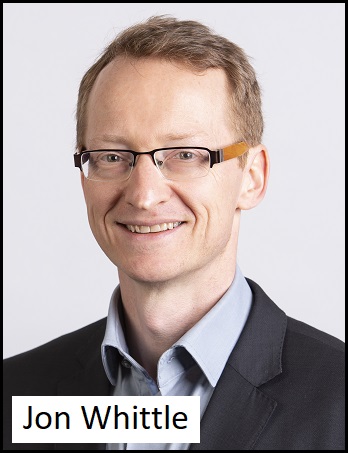
Dr Jon Whittle is an exceptional researcher and leader.
He advocates that software engineers consider the needs of the many people with different aptitudes, experiences and abilities who will use the systems that they build, as well as the many different environments and contexts in which these systems will be used.
He is widely acknowledged as an expert in software engineering and a champion of the responsible application of technology from an ethical viewpoint.
Whittle’s many research contributions often apply this lens to look at the emerging technologies within ICT.
When Dean of Faculty of IT, this approach advanced research rankings and consolidated the faculty’s position both in Australia and Internationally.
As Executive Director of CSIRO Data61, Jon demonstrated that establishing policies that consider gender balance and diversity can be effective and be a model for innovation and success.
Dr William Yeoh (VIC)
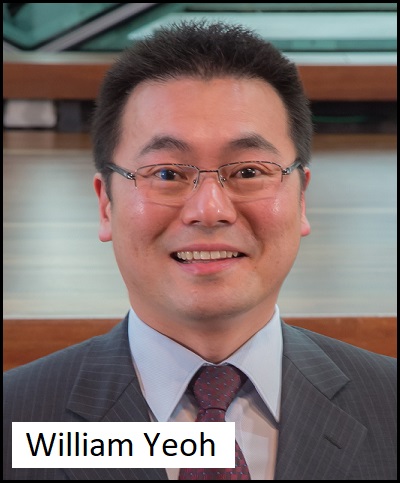
Dr William Yeoh is an innovative educator, establishing courses and employment opportunities for students in the field of data analytics.
As a researcher, he has contributed to the development of world-renowned Intelligent Business Analytics applications that have led to significant savings for government and industry.
He co-founded the Global Analytics Education Network, a virtual hub facilitating analytics education, and was instrumental in the successful ACS accreditation of Australia’s first Master in Business Analytics.
Yeoh also initiated and led Deakin’s IBM Centre of Excellence in Business Analytics. All these programs fostered students’ abilities and employment opportunities.
The global analytics competitions he initiated and organised have provided invaluable opportunities for students to showcase their analytics skills to the industry.
His effectiveness as a mentor was demonstrated when his team was named the Worldwide Champions at the IBM Watson Analytics Competition in 2016.
Dr Wenjie Zhang (NSW)
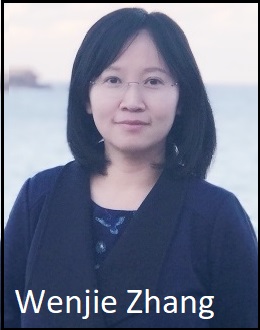
Dr Wenjie Zhang has elevated the profile of Australian research and by her work in the field of data analytics, where she has made foundational contributions and devised many new algorithms.
These have been successfully applied to data-driven decision making in underground mining and solar engineering, fraud detection in financial systems, fire resilient infrastructure, SME business succession planning, learning analytics for neurodivergent students and recently, to analysing cellular systems, impacting significantly both their profitability and efficiency.
Zhang’s research group has been consistently ranked at number 5 in the world.
She is widely recognised for her ability to communicate across a wide variety of disciplines, and her willingness to address audiences of all sizes and interest to explain the applicability of her work.
She inspires and nurtures her colleagues to excel in their academic careers and is generous with her time to encourage the young into ICT.










